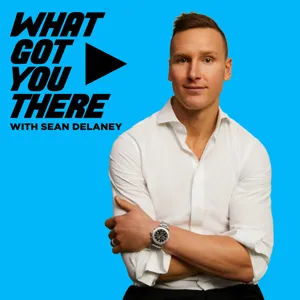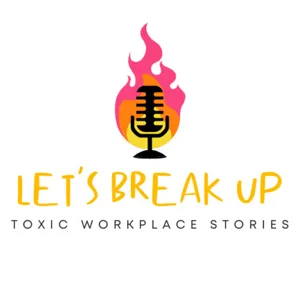Podcast Summary
Think Like a Freak Book Club and Chapter Discussion: Consider the economic incentives behind actions and decisions to gain a deeper understanding of the world.
The hosts, Stephen Dubner and Steve Levitt, also introduced the Think Like a Freak book club, encouraging listeners to send in questions about the book for potential answers on the podcast. One chapter of the book, "The Three Hardest Words in the English Language," was discussed, and it was revealed that the difficult words are not "I love you," but rather "What is the economic incentive?" This question challenges us to think critically and consider the underlying motivations and consequences of our actions and decisions. Overall, this episode emphasizes the value of questioning and observing closely to gain a deeper understanding of the world around us.
Admitting 'I don't know' is crucial for improvement and learning: Embracing the unknown and admitting 'I don't know' opens opportunities for learning and personal growth
While it may be tempting to fake knowledge in professional settings, such as job interviews, it is actually detrimental to personal growth and development in all areas of life. According to Steven D. Levitt, co-author of Freakonomics, admitting "I don't know" is a crucial step towards improvement and learning. However, the fear of appearing incompetent or unknowledgeable often prevents people from admitting their limitations. Amanda Waterman, a developmental psychologist, has researched children's willingness to say "I don't know" and found that it is a skill that can be learned and cultivated throughout life. By embracing the unknown and being open to learning, we can make things better and become better versions of ourselves. So, the next time you're faced with a question or situation where you don't have the answer, don't be afraid to admit it. Instead, view it as an opportunity to learn and grow.
Children's inclination to answer unanswerable questions: Two-thirds to three-quarters of children aged 5-8 answer yes or no to unanswerable questions, indicating a strong desire to provide answers despite lacking information
Children often respond with confidence to unanswerable questions, even though they don't actually know the answer. This was discovered through a research study where children were asked a series of increasingly absurd questions, such as whether a jumper is angrier than a tree. The study then moved on to asking unanswerable questions, like whether the family in a story listened to music in the car or not. The vast majority of children, around two-thirds to three-quarters, in the age range of five to eight years old, would still answer yes or no to these unanswerable questions. This behavior suggests that children have a strong inclination to provide answers, even when they don't have the information to do so.
Classroom pressure drives impulse to answer questions even when unsure: People continue to feel pressure to answer questions despite lacking information due to childhood testing experiences, power dynamics, and questioner expectations.
Children's impulse to answer questions even when they don't know the answer stems from their classroom experience where they are frequently tested and feel pressure to perform. This behavior continues into adulthood, where people often feel compelled to have an opinion or provide an answer, even in situations where they may not have all the information. The power dynamics in these situations can make admitting ignorance difficult, leading to potential misinformation or inaccurate answers. The discussion also highlighted that the expectations of the questioner play a significant role in how individuals respond. Children start to learn these social dynamics at a young age, and they carry over into various aspects of life, including the workplace and politics. It's essential to recognize that the quality of answers given depends not only on the knowledge possessed but also on the context and expectations surrounding the question.
Acknowledging Ignorance is Key to Learning: Recognizing our lack of knowledge and actively seeking feedback are essential for personal and organizational growth
The inability to admit what we don't know can hinder our learning process. It's human nature to want to appear knowledgeable, but this tendency can prevent us from seeking out new information and growth. The first step to learning is acknowledging our ignorance and then actively working to fill in the gaps. Feedback is essential in this process, as it allows us to evaluate the outcomes of our actions and adjust accordingly. Whether we're individuals or organizations, we can all benefit from embracing experimentation and a willingness to learn from our mistakes. Simply put, being open to saying "I don't know" and actively seeking out feedback are crucial components of continuous growth and improvement.
The fear of uncertainty and lack of experimentation can lead to missed opportunities: Admitting what we don't know and experimenting can lead to valuable insights and improved decision-making, preventing missed opportunities and potential cost savings.
The unwillingness to experiment and admit what we don't know can have significant consequences. The people in the French marketing industry struggled with this concept because it meant acknowledging that they weren't experts and might not have all the answers. A classic example of this is a multinational retailer that spent millions on TV ads but didn't experiment with other forms of advertising. They believed their TV ads were four times more effective than print ads based on sales data, but upon further investigation, it was discovered that sales increased around holidays regardless of advertising. The retailer was essentially spending a fortune on ads during times when people were already shopping. By not experimenting, they missed out on potential cost savings and improved marketing strategies. In essence, being open to experimentation and uncertainty can lead to valuable insights and better decision-making.
Reluctance to change marketing strategies despite uncertainty: Companies should be open to testing marketing strategies with data, even if it means taking a calculated risk.
Even when faced with uncertainty about the effectiveness of their marketing efforts, companies may be reluctant to change their strategies, even if it means continuing to invest in potentially ineffective channels. In this case, a company was considering the impact of newspaper inserts on sales, but had no concrete data to support their belief that they were effective. When presented with a proposal for a randomized experiment to test the impact of stopping newspaper inserts in select markets, the company was hesitant, fearing the potential negative consequences of not advertising in those markets. However, when presented with data showing no impact on sales when an intern failed to order the inserts in Pittsburgh, the company became excited and open to the idea of conducting the experiment. This anecdote highlights the importance of data-driven decision making and the potential benefits of testing marketing strategies, even if it means taking a calculated risk.
The power of admitting 'I don't know': Admitting uncertainty fosters learning, discovery, feedback, and potential experimentation. Leaders should encourage a culture that normalizes this mindset.
Organizations and individuals can benefit greatly from embracing the phrase "I don't know." In the discussed scenario, a company continued to invest in ineffective advertising methods due to a fear of admitting uncertainty and a lack of incentives to experiment and learn. Psychologist Amanda Waterman's research emphasizes the importance of admitting what we don't know, particularly in complex situations where cause and effect are not straightforward. This admission serves as the foundation for learning, discovery, feedback, and potential experimentation. Leaders play a crucial role in fostering a culture that encourages this mindset. By normalizing the acknowledgment of uncertainty, we can create an environment conducive to growth, innovation, and better decision-making.
The value of admitting you don't know: Embracing the mindset of admitting you don't know can promote growth, especially for leaders. It's a challenge for some, but essential for maintaining curiosity and openness to new ideas.
Admitting you don't know is a valuable skill that can break cycles of arrogance and promote growth, especially in leadership roles. The speaker acknowledges that this can be a challenge, as some people may have risen to the top by hiding their lack of knowledge. However, they encourage embracing this mindset, especially for the next generation, and learning from the simplicity and joy of thinking like a child. Next week on Freakonomics Radio, they will explore this concept further and discuss why we should all strive to maintain a sense of curiosity and openness to new ideas, no matter our age or position. Freakonomics Radio is produced by WNYC and Dubner Productions, and their team includes David Herman, Greg Rosalski, Greta Cone, Beret Lam, Shruthi Pinimanini, Susie Lechtenberg, Chris Fanon, and Jim Briggs. To access more content from Freakonomics Radio, subscribe to their podcast on iTunes or visit their website at Freakonomics.com.






